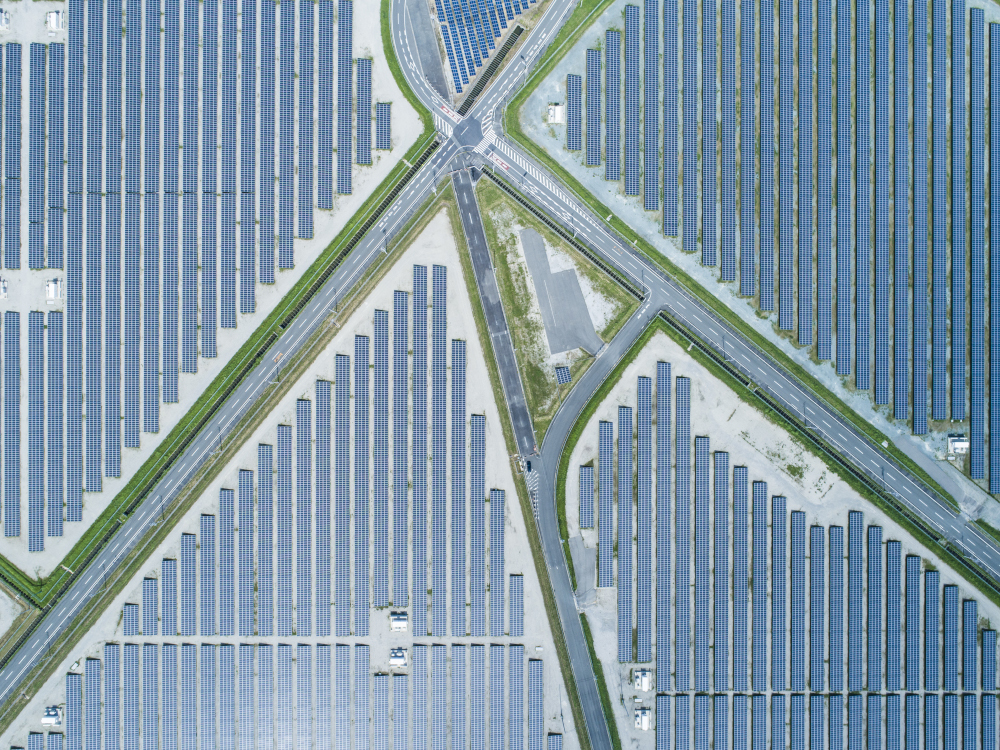News analysis: US election turmoil sows doubt in renewables sector
Four months out from November’s US national elections, the prevailing wisdom among industry stakeholders is that the renewable energy sector will continue its upward trajectory, regardless of the political alignment in Washington next year.
But, as polling leans towards a Republican advantage, and campaign season strays further into uncharted territory, confidence among some experts about that supposed resilience has softened.
As the election has drawn closer, some advisors and project sponsors have described to Infralogic a growing trend across the sector toward accelerating talks on late-stage deals to lock in current conditions while slowing down discussions that are less advanced, in an effort to get more visibility on the coming political alignment.
“It’s gone from ‘whatever,’ to “WTF?!” Allan Marks, a global project finance partner in Milbank’s project finance practice tells Infralogic, referring to the rapid erosion of complacency over the election’s potential impacts on the renewables industry.
Growing anxiety
The philosophical divide between the two major US political parties on energy policy is not subtle. Democrats have passed major legislative incentives for renewable energy development and introduced regulations across the federal government to rein in carbon emissions from fossil fuel sources. Republicans, meanwhile, have used a House majority since 2023 to rail against a Democratic “rush to green” and sought to spur investment in fossil fuels by reducing regulatory burdens, royalties and emissions penalties. And the GOP nominee, former President Donald Trump, has consistently derided renewable energy and promised to end federal support for the offshore wind sector.
For months, experts asked by Infralogic about the impact of the election have largely focused on the positive benefits of the Biden Administration’s landmark climate legislation, the 2022 Inflation Reduction Act (IRA). The largest piece of climate and renewable energy legislation in the history of the world by dollar value, most experts think full or majority repeal of the law’s hundreds of billions of dollars in support for renewable energy deployment is unlikely.
Backers of renewable energy often point to the strength of political inertia, with the GOP’s failure to repeal the Affordable Care Act during Trump’s first term in office cited as a case in point. It was assumed that a sweeping Republican victory was unlikely, and at best Trump would take office with narrow majorities in the House and Senate, limiting his power to reverse existing laws.
But, as the prospect of a major realignment of federal government political power has grown more plausible, the possibility of major changes to the IRA has begun to enter the realm of possibility in the minds of some stakeholders.
That shift was brought into stark alignment for Marathon Capital founder and CEO Ted Brandt following a disastrous performance by President Joe Biden in the televised 27 June presidential debate. That poor performance has set off a weeks-long public discussion in the media and within the Democratic party about whether old age has rendered the current president incapable of carrying his party’s nomination and their agenda into the November election.
“The events from the debate last week have an awful lot of people questioning whether the key Biden policy, the IRA, is going to remain in place. Or, if not, will there be changes?” Brandt said shortly after the debate on Infralogic’s Crossroads podcast. “Up until last week, the industry feeling was wild optimism: lots and lots of capital had been raised around the sector, no real doubts about public policy. I think [27 June]’s events clearly changed that.”
Brandt said that one client in the space that had been planning a capital raise, decided instead to attempt a sale in the wake of the debate.
But election anxiety within the renewables sector is not pinned solely to the debate and its fallout within the Democratic Party. For months, as the election has drawn closer, renewables stakeholders who are not deeply immersed in political news have been gradually awakening to the full spectrum of potential effects from a GOP win in November, said Marks.
An industry-wide sense of security about the future of the IRA has given way to growing concerns about the potential risks of smaller changes to existing legislation, or regulatory efforts under a potential Trump administration at the Department of Energy (DOE), the Environmental Protection Agency, and the Federal Energy Regulatory Commission and other agencies that could inject uncertainty into the sector, he said.
Meanwhile, GOP lawmakers have indicated an increased openness to the idea of clawing back some funding for IRA programs in order to offset the cost of extending the 2017 Trump tax cuts, in the event Republicans win a trifecta government going into 2025.
Those concerns have set a number of project sponsors racing to solidify project details and financing agreements before any major shift in the political landscape.
“There are certainly projects that are putting the pedal to the metal,” said Marks.
IRA, here to stay?
Despite growing concern in some corners of the industry, the prevailing wisdom continues to be that political vulnerabilities for core technologies like onshore wind, solar, and battery storage are limited, while their tailwinds are both strong and durable.
“Overall, there will be a modest impact on renewables financing if the administration changes. The volumes are so strong right now and will remain strong going forward,” an investment banking executive involved in the renewables space told Infralogic.
Gary Durden, managing director of renewable energy-focused investment bank CRC-IB, told Infralogic that the election is top of mind for many in the sector, but expectations are the impacts will likely be limited regardless of the outcome.
“It’s a topic of almost every single conversation, but I haven’t heard anybody say, ‘I can’t do a deal until we get some more certainty,” said Durden.
Kevin Smith, the CEO of renewable energy firm Arevon, said he has seen concern in the industry grow “modestly” since the debate, but not dramatically. The biggest near-term policy threat, he said, comes from tariff issues.
“I don’t know if that is going to change regardless of who is in the presidency. I think that both parties are gearing up for significant tariffs on China,” Smith said. “If tomorrow we know that there was a 90% chance that the Biden administration was going to move forward, I’m not sure it would move the market that much.”
With regards to the IRA, Durden says that the significant economic benefits to red districts from the legislation make it difficult to imagine a GOP majority garnering the necessary support to repeal significant portions of the law.
“We are doing projects, as is most of the industry, probably more in red states than blue states,” Smith noted.
That echoes a sentiment espoused by the vast majority of industry experts who spoke to Infralogic on the matter. Some have pointed to the failed GOP effort to repeal the Affordable Care Act, as an example of the challenges related to overturning such legislation once it’s gone into effect. Reversal of the healthcare law known as “Obamacare” had been the very heart of the GOP’s policy agenda for nearly eight years, when a narrow Republican majority in the Senate fell one vote short of repeal in 2017. And Republican opposition to the IRA is not nearly as unified as it was to Obamacare.
With regulatory frameworks for all the IRA’s major clean energy programs already in place, and a broad range of market forces supporting continued growth, many see the renewable energy sector as insulated from the decline in government support that might come from a GOP win in November.
“I don’t think that the renewable energy industry requires explicit support from the President. I think there are many tailwinds that are propelling the industry forward,” said Durden.
However, many provisions of the IRA are shaped by guidance issued by the administration. Ethan Zindler, the climate counselor at the DOE, said at the 4-5 June ACORE Finance Forum that his department is working to get as much guidance as possible issued by the end of the year, before a potential Republican takeover. It is though unlikely a new administration would undo guidance that’s already been issued, one industry attorney said.
Emerging technologies more vulnerable
But, while onshore wind, solar, and battery storage may have achieved the necessary momentum to continue to soar without much in the way of additional policy support, emerging technologies like renewable fuels and offshore wind could face significant challenges under a Trump presidency.
Benefits from those technologies are also less widely distributed across the country than core renewables, making the politics of rolling back support an easier lift.
“There may be subsector impacts that are larger, like offshore wind and green hydrogen,” said the investment banker about the impacts of a change in administration.
Many of the experts spoken to for this story immediately mentioned electric vehicle rebates as an area of the IRA that Republicans might try to roll back. Renewable fuels and offshore wind were generally next on the list of areas that could lose support under a second Trump administration.
Direct economic support for offshore wind in the IRA is largely tied to the broader incentives covering onshore wind, which could insulate it from legislative attack. But the sector is highly dependent on support from the federal government in the form of permitting, site identification and leasing, and technical studies.
Trump’s willingness during his first term to pursue unfavorable policies for states that vote heavily democratic could portend poorly for offshore wind in a potential second term, given the current concentration of the offshore wind sector off blue state coastlines, Milbank’s Marks said.
Stakeholders in the US offshore wind sector are watching anxiously as the November election nears, as the outcome could have significant implications for the trajectory of the sector, Michael Brown, chief executive for Ocean Winds North America, told Infralogic.
“Of course, that’s something we think about. Everybody thinks about that,” Brown said with a grin when asked about the election in June.
EDP Renewables and Engie-backed Ocean Winds is the sponsor of the 1.2 GW Southcoast Wind Project currently under consideration for a multi-state energy procurement in New England.
Political uncertainty around the election makes it hard to make long term commitments, and developers like Ocean Winds might be inclined to put off major decisions until after the election, where possible, Brown told Infralogic, adding that the company would be more inclined to commit resources to its US offshore wind strategy if Democrats remain in office.
With more than 100 days remaining between now and election day, any number of new developments could still change the direction of the campaign. And the energy policy agendas of the two parties vying for control of the government could not differ more starkly.
The consensus among the experts is clear that for projects that are further along, it makes sense to stay the course, or lock in agreements, before a potential change in the government.











